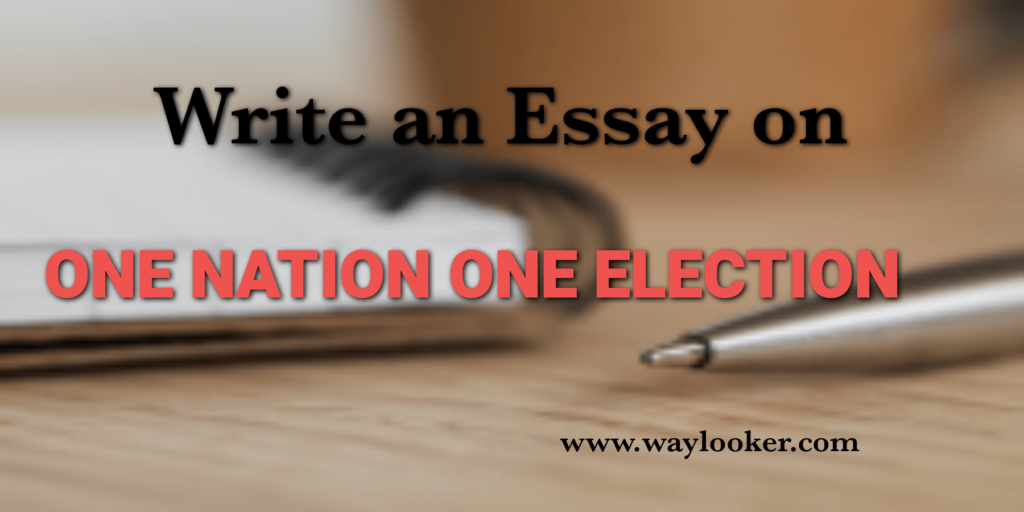This is an essay on Essay on One Nation One Election. The idea of “One Nation, One Election” has generated a lot of discussion and interest in the Indian political scene. It suggests that all state and federal elections should occur at the same time, once every five years. This idea seeks to improve governance, minimize election-related costs, and streamline the electoral process.

One Nation One Election
As one of the BJP government’s electoral promises, the current administration is attempting to execute One Nation One electoral. One Nation One Election has many advantages, including lowering election costs and streamlining government, which are reasons why the government wants to implement it.
ADVANTAGES
The concept’s huge cost reduction in relation to elections is one of its main benefits. India currently holds state and national elections frequently, which comes at a high cost to the government, political parties, and candidates. All elections may be held concurrently, which would result in significant financial savings.
Politicians and decision-makers frequently turn their attention away from governance and growth as a result of frequent elections. By reducing these interruptions, One Nation One Election enables elected officials to concentrate on their tasks and obligations.
A five year (full term) governing cycle would be evident with simultaneous elections. Governments would no longer be in an election mode, which can lead to better planning and execution of programs and projects.
Regular elections may cause political polarization to persist. Simultaneous elections may lessen the polarizing and contentious elements of electoral politics, promoting a more positive political climate.
One Nation, One Election could boost voter turnout by minimizing the number of elections. If voters do not have to vote as regularly, they might be more likely to exercise their right to vote.
CHALLENGES ONE NATION ONE ELECTION
Amendments to the Constitution and other laws are necessary in order to implement simultaneous elections. As it entails balancing federal and state interests, this process may be drawn out and difficult.
Election cycles in states with shorter or longer legislative terms would need to be adjusted to match the federal election schedule. This homogeneity could be difficult to achieve.
Elections held simultaneously may cause national problems to take precedence over regional ones. The representation of local interests may suffer as a result.
One Nation, One Election requires a solid infrastructure, including the availability of electronic voting equipment, security staff, and logistical assistance. A big problem is ensuring that this infrastructure is capable across all states and union territories.
The pursuit of national goals may cast regional parties and local issues into the background. This could have an influence on representational diversity and the effectiveness of localized problem-solving.
IMPACT OF ONE NATION ONE ELECTION
Coalitions and hung assemblies might become less frequent under One Nation, One Election, which could result in more stable governments with a clear mandate.
Consolidating election procedures would optimize resource use and result in large savings that might function to fund development projects.
Less political noise could lead to improved governance and policy implementation, which would eventually benefit the public.
One Nation One Election raises questions about how successfully states will be able to handle local concerns and maintain their independence.
It is important to recognize the practical difficulties involved in putting this change into action, including the requirement for coordinated logistical and security measures.
Conclusion
It is important to give “One Nation, One Election” great thought and consideration. While it has the potential to cut costs, improve continuity of governance, and minimize divisiveness in elections, it also poses considerable obstacles in terms of constitutional modifications, regional representation, and logistical operations. To fully consider the benefits and drawbacks of this idea, policymakers and stakeholders must have a meaningful and inclusive conversation. The values of federalism, democratic representation, and the welfare of the Indian people should take precedence in any choice on the implementation of One Nation, One Election.
